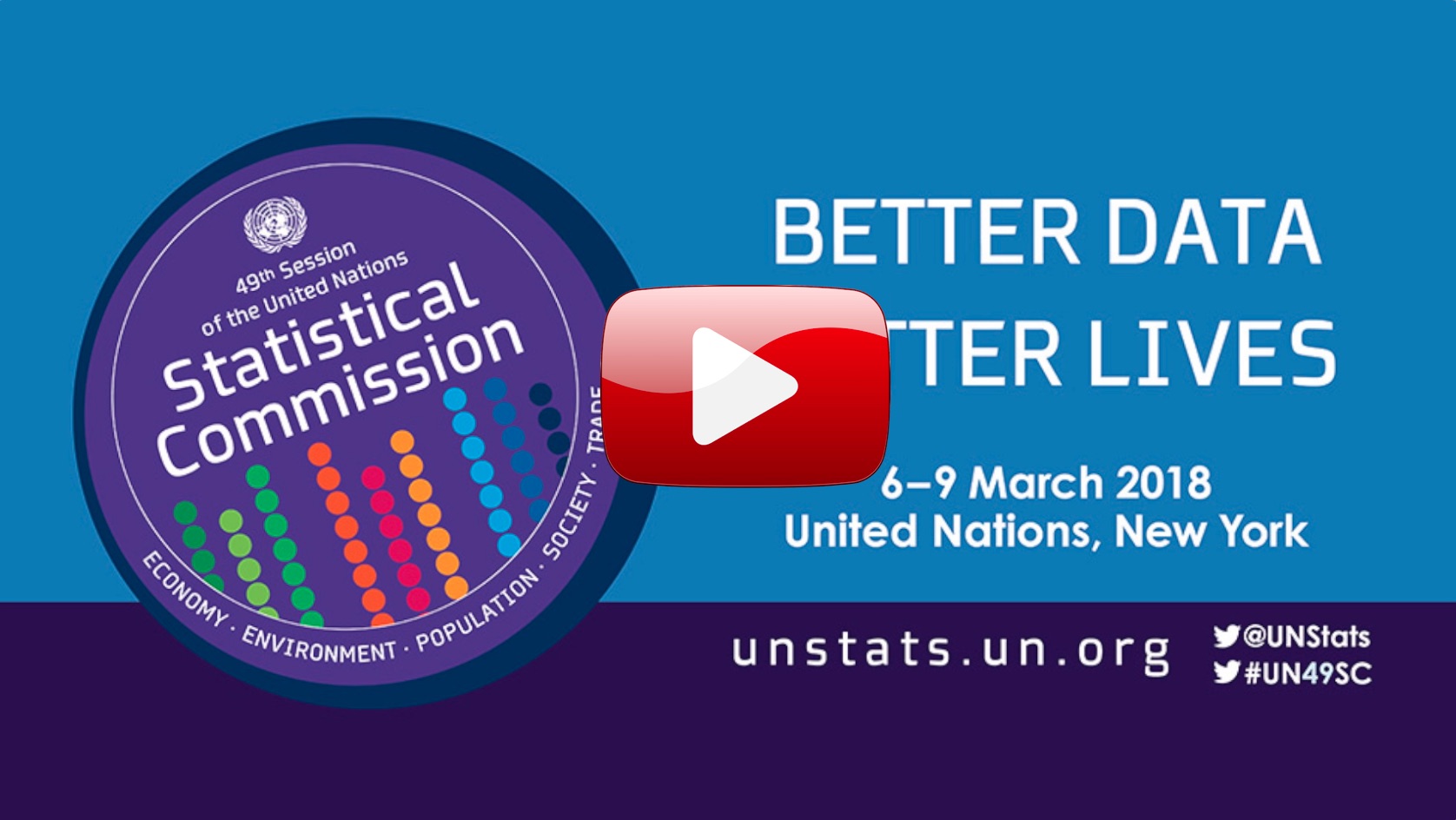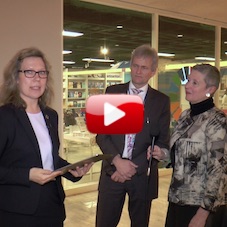| | | | | | | Newsletter of the United Nations Department of Economic and Social Affairs | | | | | Volume 22, No.03 - March 2018 | | | | |  | | | | | | | | |  | | | | | | | The power of data to improve our lives | | | | Statistics, numbers, figures they tell the story of our lives. How well we live, and how well we take care of ourselves, each other and the environment. Through data, for example, we know how healthy people are, how many people live in poverty worldwide, how many children are not able to go to school, and where we stand on gender equality and our efforts to combat climate change. | | | | | | | | | | | | | |
| | | | | | | | | | | | | | | | HIGHLIGHTS | | | | | | | | | | | |
There is a global water crisis. 40 percent of the worlds people are affected by water scarcity and two billion people are forced to drink unsafe water. Pressure on the worlds precious freshwater resources is rising and the need for action is urgent. Managing water well is essential for the international community to deliver the promise of the 2030 Agenda for Sustainable Development. Without this, most of the Sustainable Sustainable Development Goals (SDGs) cannot be achieved. Every drop matters.
| |  | | | | | | | | | | | | | |
| | | | | | | | | | | | | | | |  | |
10,000 years ago, at the end of the last great ice age, 6 billion hectares of forests covered 45 per cent of the Earths land. Over the last 5,000 years, 1.8 billion hectares were lost, and most of this loss, 1.4 billion hectares, happened in the last 300 years. Today, forests cover about one third of land on our planet. An estimated 75% of global forest loss and degradation today, can be attributed to deforestation for agricultural expansion. Per FAO figures, by 2050 global agriculture production will increase by 60%, and meat production by 76%. Meeting this global demand for food, without impacting forests and taking environmental risks, poses a significant challenge.
| | | | | | | | | | | | | |
| | | | | | | | | | | | | | | |  | |  | |  | | | | | | | | | | | | | | | GET INVOLVED | | | | EXPERT VOICES | | | | IN CASE YOU MISSED IT | | | | | | | | | | | | | | | |
Good water quality is essential to human health, social and economic development, and the ecosystem. Environmental sustainability can be incorporated in the Sustainable Development Goals (SDGs), while the water and sanitation SDG (SDG6) clearly includes the target to improve water quality. As populations grow and natural environments become degraded, ensuring there are sufficient and safe water supplies for everyone is becoming increasingly challenging. But there are different ways for people to get involved and take action for safe water.
| | | |
Fix the roof while the sun is shining can best describe the unique opportunity that the international community has been given by the recovering economy. The global economic outlook has visibly strengthened, creating a favourable environment for countries to remove the barriers that are impeding the progress of the Sustainable Development Goals (SDGs).
| | | | Life-saving numbers: how solid data can protect refugees and migrants
Judging by media reports alone, we might be led to believe that migration is the defining challenge of the 21st century; that it is an unprecedented strain on the social services of states and a threat to their values. Yet, recent UN DESA data shows that 96.6 per cent of all people live in the country of their birth. More than that, research confirms the multiple benefits that migrants bring to receiving and origin countries alike.
| | | | | | | | | | | | | | | | | | | | | | | | | |
| | | | | | | | | | | | | | | | | | | | | | FIND US ALSO ON:
     | | | | |
|
|
